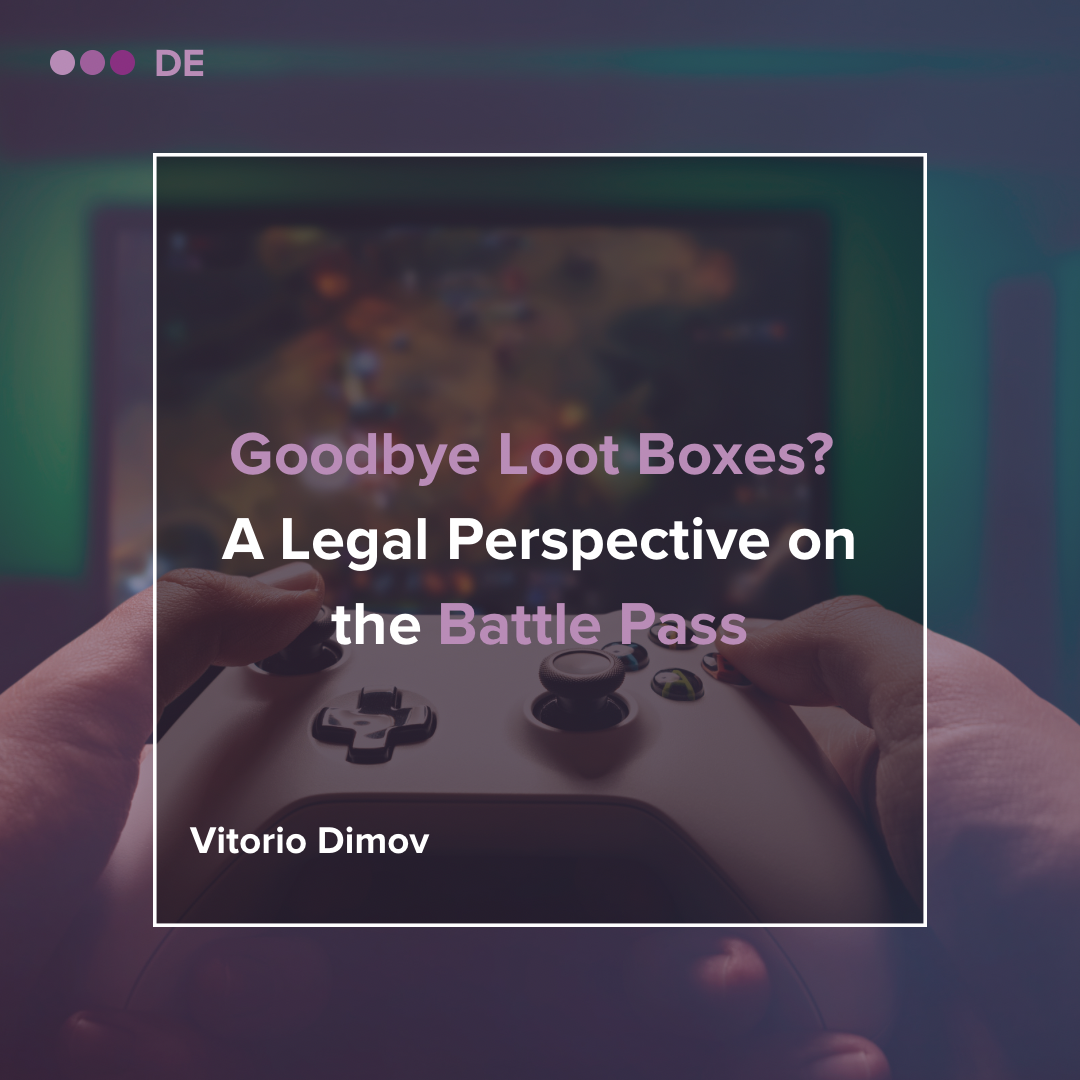Skinshop vs. Google – The DSA in practice

The debate surrounding the monetisation of video games has long since become a core issue within the gaming world. For some time now, the focus has primarily been on all forms of loot boxes. However, the constant evolution of technology, society, and the economy has introduced a challenger to loot boxes as a prevalent and long-term monetisation system: the Battle Pass.
Legal disputes in esports can be costly and time-consuming, especially when it comes to salaries, prize money, or transfers. Besides mediation, a traditional system involves entering into an arbitration agreement and conducting subsequent arbitration proceedings (often referred to as "Alternative Dispute Resolution" or "ADR"). Riot Games, one of the leading publishers in gaming and esports, has recently introduced an innovative arbitration system in the esports sphere for the EMEA region with its newly unveiled Dispute Resolution System (Riot DR). The aim is to provide quick, fair, and cost-efficient solutions to legal conflicts in the competitive leagues of League of Legends (LoL) and Valorant.
The CJEU ruled, in response to questions referred by the German Federal Court of Justice (BGH), that the Action Replay software for the PlayStation Portable (PSP) likely does not constitute copyright infringement. The case, initiated by Sony against the third-party provider Datel, centered on whether the modification of game elements, such as unlocking additional content, infringes Sony's protected copyrights. This ruling has far-reaching implications for the digital space and may impact the use of mods and similar tools in other software sectors as well.
How do AI-generated NPCs and deep fakes affect personal rights in video games? Discover the legal risks and the requirements of the AI Regulation - from naming rights to image and voting rights.
Following its failure to qualify for the League of Legends (LoL) Worlds 2024 for the first time since 2016, the e-sports organization Cloud9 has once again stirred up the LoL scene by unexpectedly terminating the contract of Joseph Joon "Jojopyun" Pyun, a player signed as recently as November 2023. The reason behind the termination is reportedly Jojopyun’s tardiness to training sessions, workouts, and meetings on at least 43 occasions.
Even in times of the "eSports Winter," the gaming industry continues to grow steadily and has become one of the largest entertainment media in the world. Last year alone, the industry's revenue in Germany rose to nearly 10 billion euros. Innovative game concepts and unique game designs are crucial for the success of video games. The competition for media attention and players is fierce. It is not uncommon for basic concepts and game ideas of successful games to be adopted by competitors to offer similar games and benefit from the hype of the original game. It is therefore not surprising that legal proceedings in the industry are also increasing. The Cologne Regional Court recently dealt comprehensively with the copyright protection of game concepts and the limits of imitation.
The computer game Palworld from the Japanese developer studio Pocket Pair was released less than a month ago and has since been the subject of numerous accusations of plagiarism, particularly in social media. The accusation from users is that Palworld is a Pokémon clone that makes illegal use of the Pokémon Company's ideas and intellectual property.
Fortnite dance problematic in terms of copyright?
The geoblocking mechanisms used by Valve, the operator of the "Steam" platform, and several publishers on Steam constitute an impermissible restriction of the free internal market. At least, that is how the Court of Justice of the European Union (EuG) saw it, demonstrating that geoblocking is not completely free in the EU. In particular, the ECJ clarified that the protection of copyrights cannot per se lead to admissibility
The world of online games holds a fascinating dynamic in which players from all over the world can explore virtual worlds and interact with each other. But behind the scenes of these digital realities, developers and publishers face a critical task: moderating player behavior and ensuring fairness in competition. Online games that rely on cooperation and competition face the challenge of maintaining a positive gaming environment and guarding against cheating and hacking. In this article we show how these problems can be addressed with the help of artificial intelligence and what needs to be considered in order to mitigate potential legal risks.
In video games, artificial intelligence (AI) has not been a foreign word for a long time. NPCs (non-player characters) and bots have always been described as AI. But the advances in the sphere of actually capable, generative AI, such as the proprietary tools for AI game development called NVIDIA Omniverse ACE (Avatar Cloud Engine) announced by graphics card manufacturer NVIDIA the Computex 2023.










